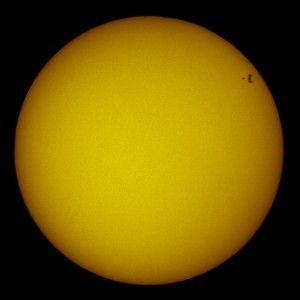10 years ago today, Expedition 1 Commander Bill Shepherd and Flight Engineers Sergei Krikalev and Yuri Gidzenko climbed aboard the International Space Station, marking the first of 3652 days of continuous occupation so far. I think that on that day a decade ago, we truly became a space-faring species.
Since that day, 200 men and women from more than a dozen nations have stayed aboard the station, living there, playing there, working there, and yes, even doing some science there.
I have such conflicted feelings about the ISS! I want us to have a permanent presence in space. I want us to be pushing the boundaries of science, of exploration, of what humans can see and do in space. I want us to have a stepping stone to the planets and the stars.
The ISS has the potential to fulfill most of those desires, if we so choose. That may not be obvious now, though. It started off well, back in the planning stages, but like any multi-billion dollar project, so much pork was added that it became a feeding trough for politicians. For quite some time, what we got was a $100 billion orbiting platform that couldn’t do a whole lot of science or exploration.
But this will change. The Alpha Magnetic Spectrometer is due to go up in February 2011, and that is a very important scientific experiment. Now that construction of the station is almost complete, there is more money and time to do science aboard, too. Private American companies will soon start taking supplies and people up to orbit, and other countries will do so as well. There’s hope here.
 While I think the ISS should’ve been done better from the start (and yes, I know how easy it is to make an armchair pronouncement), the thing to keep in mind is that the money is already spent. We now have an operating space station in orbit around the Earth.
While I think the ISS should’ve been done better from the start (and yes, I know how easy it is to make an armchair pronouncement), the thing to keep in mind is that the money is already spent. We now have an operating space station in orbit around the Earth.
The question now is, what do we do with it?
NASA has plans to be a part of the ISS until 2020 at least, and President Obama’s NASA budget authorization, recently passed by Congress, also funds ISS for another decade.
We have another 3653 days, at least, to use the orbiting platform. What shall we do with them?
Image credit: NASA & Wikipedia, and Thierry Legault.
Related posts:
- Whence NASA?
- 40 years later, failure is still no longer an option
- Give space a chance